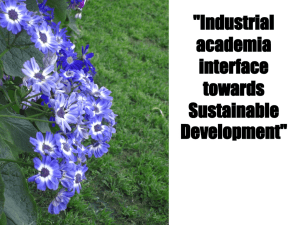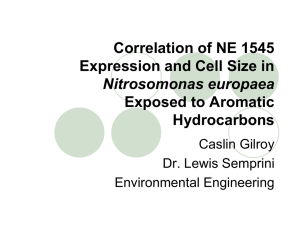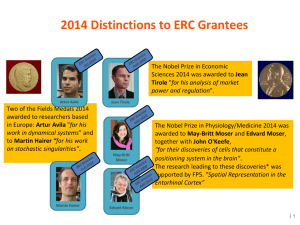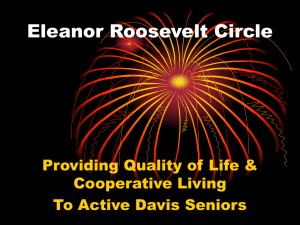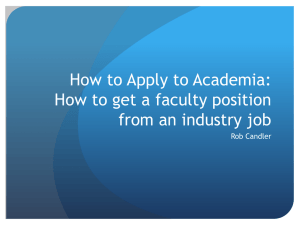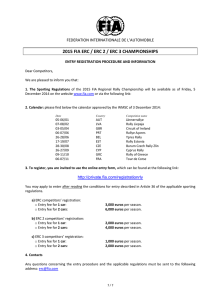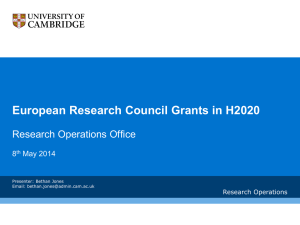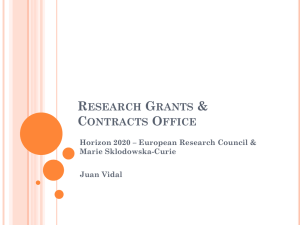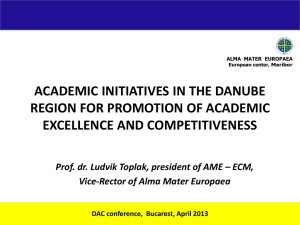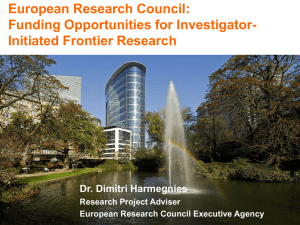Towards a stable and robust Academia
advertisement
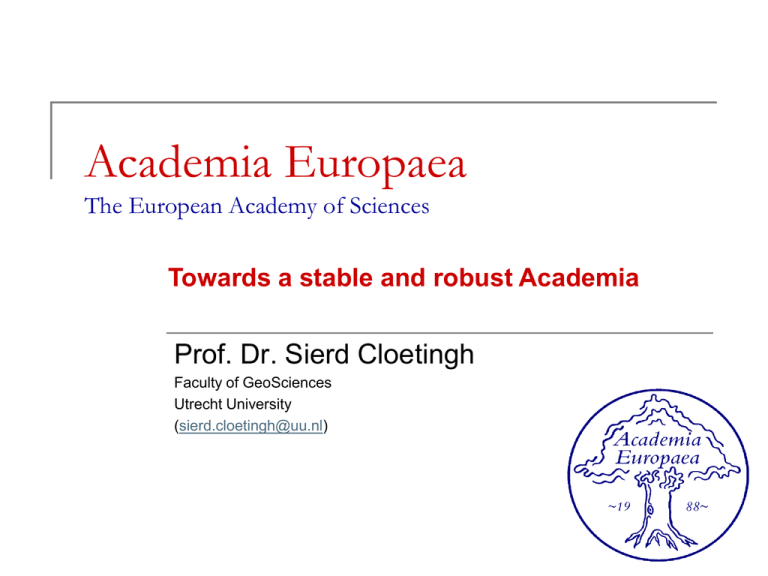
Academia Europaea The European Academy of Sciences Towards a stable and robust Academia Prof. Dr. Sierd Cloetingh Faculty of GeoSciences Utrecht University (sierd.cloetingh@uu.nl) The concept of a 'European Academy of Sciences' was raised at a meeting in Paris of the European Ministers of Science in 1985. The initiative was taken by the Royal Society (UK) which resulted in a meeting in London in June 1986 of Sir Arnold Burgen FRS (Foreign Secretary, The Royal Society, UK), Hubert Curien (Minister of Science, French Government, F), Umberto Columbo (ITA), David Magnusson (S), Eugen Seibold (Germany) and Ruud van Lieshout (NL) – who agreed to the need for a new body that could express the ideas and opinions of individual scientists from across Europe. Build on Academia Europaea’s assets Broad-based reputation Membership Office Track-record of workshops and reports International advisory role Leadership & service Inspiration to members Support to the office Activate the activists Create opportunities for European science Influence policy/decision makers Work on a stable financial base TOPO-EUROPE – The Geoscience of Coupled Deep Earth – Surface Processes Klaus Tschira Foundation GmbH International Lithosphere Program Netherlands Research Centre for Integrated Solid Earth Sciences 23 countries joined TOPO-EUROPE: 14.5 Meuro budget, 60 new research positions Academia Europaea TOPO-EUROPE workshop 2005 Participants of the TOPO-EUROPE workshop at the Studio Villa Bosch in Heidelberg, Germany. TOPO-EUROPE workshop 2014 Interplay between surface, lithospheric, and mantle processes Barcelona, September 17-19, 2014 Venue: CosmoCaixa, Science Museum Barcelona Need for active Sections Give support to strong leadership Promote cross fertilization amongst sections Incentives for new initiatives carried by excellent young researchers Benefit from the full European added value Foster capacity building in Europe Set up in 2007 by the EU, the European Research Council (ERC) is the first pan-European funding organisation for frontier research. It aims to stimulate scientific excellence in Europe by encouraging competition for funding between the very best, creative researchers of any nationality and age. The ERC consists of an independent Scientific Council and an Executive Agency. The Scientific Council, the ERC's governing body, is composed of 22 distinguished scientists and scholars, including the ERC President, who define the scientific funding strategy and methodologies. They act on behalf of the scientific community in Europe to promote creativity and innovative research. From 2007 to 2013 under the seventh EU Research Framework Programme (FP7), the ERC's budget was €7.5 billion. Under the new Framework Programme for Research and Innovation (2014-2020), Horizon 2020, the ERC has a substantially increased budget of over €13 billion. Since its launch, the ERC has funded around 4 000 researchers and their frontier research projects. AE hub Barcelona AE head office, London AE hub Wroclaw Executive Board meeting in Brussels Andreu Mas-Colell Ole Petersen David Coates Minister of Economy and Knowledge, Catalonian Government Chair of Nominations Committee Executive Secretary European Commission President Jose Manuel Barroso The position of Euro-CSA was created by the current President of the European Commission, Jose Manuel Barroso in January 2012. Professor Anne Glover was appointed to the role with responsibility for advising the President on matters relating to science, technology and innovation. The Royal Society and the European Academies Science Advisory Council (EASAC) have supported and welcomed the creation of the Euro-CSA role, and have proactively engaged with her during her mandate. The position is currently linked to the Barroso presidency and is due to expire in October 2014. Any continuation under the next leadership may depend on key scientific institutions and individuals in Europe articulating a clear case for doing so. We are already aware of concerns that the Euro-CSA does not have adequate staff resources. Priorities for Academia Europaea Widening and intensifying participation of the membership Promoting synergy between Academia Europaea and the Young Academy of Europe Strengthening the role of the sections, enhancing their effectiveness and interaction Strengthening the internal organization and financial sustainability of Academia Europaea Proactive role as voice for science in Europe, in close partnership with e.g. EASAC, ALLEA, ERC, and national academies Forward look With your support my experience of fruitful interaction with many of you in my different capacities within Academia Europaea since I was elected in 1993 my strong belief in the potential of Academia Europaea, I hope to be able to realize these goals and to continue to position Academia Europaea as an influential body of European scholars in the European research landscape.
